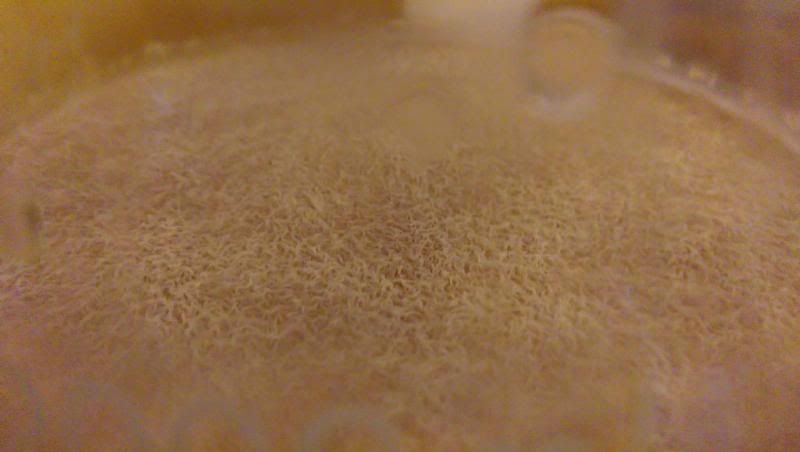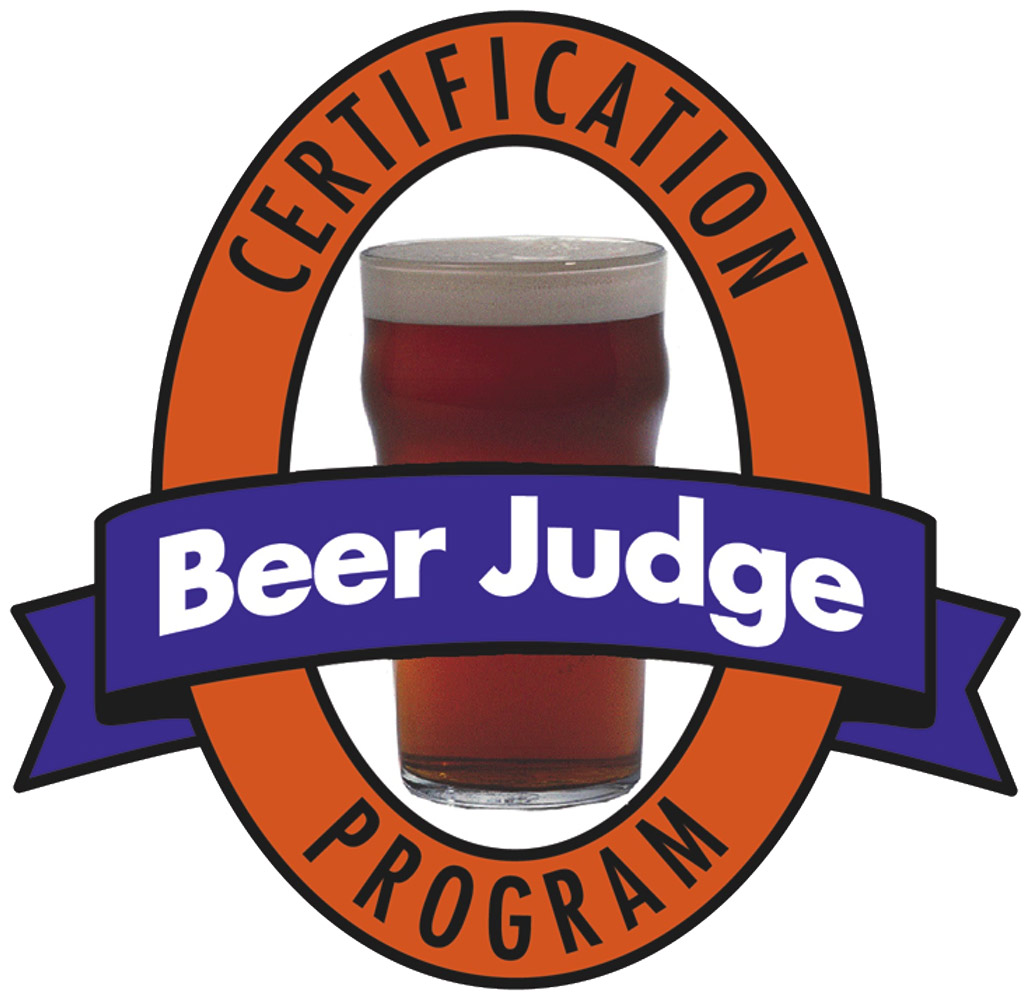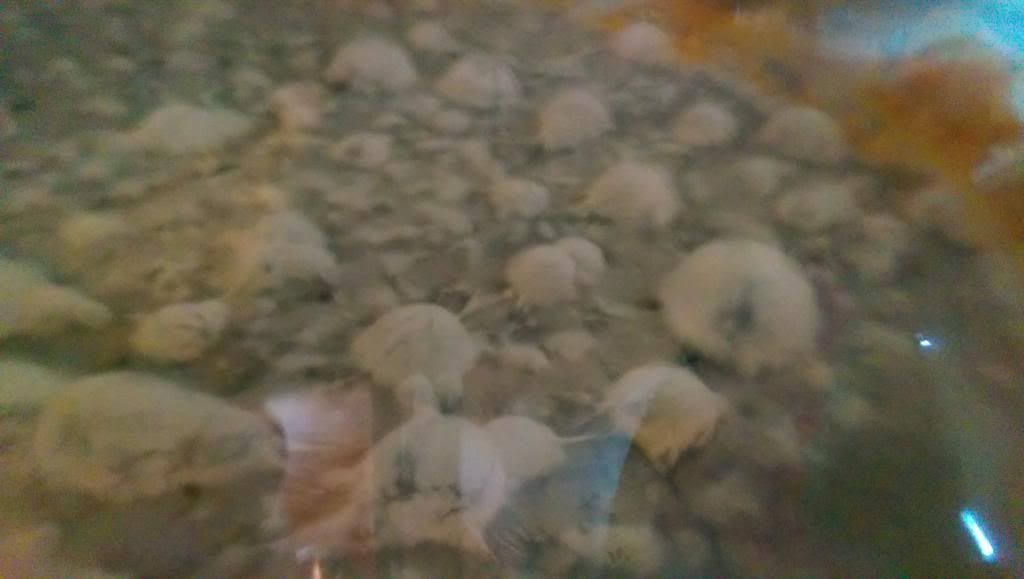HAPPY NEW YEAR'S EVE EVERYONE! I hope your year has been a good one, mine sure has. Speaking of a New Year, this should be the year we get our new BJCP Style Guidelines. And you know what, I already have a bone to pick with these new 2014 BJCP guidelines. Yes, I realize that I am about to rant on the rough draft of a document that is not yet released to the public as the solidified standards. But let’s just be honest, if you have read this section of the new proposed guidelines you have either scratched your head in wonder if it is a typo, or have become nearly irate at how glaringly inaccurate the standards for Saison are. I am building my case against a specific aspect of the forthcoming guidelines on multiple basis points: Historical accuracy, Commercial Examples given within the BJCP document, and Current Practice.
The BJCP guidelines contain 2 back-to-back nonsensical
statements that Brettanomyces is not
to be a part of the Saison
style. The Characteristic Ingredients
section states, “Brettanomyces is not
typical for this style,” and then Style Comparison says, “Saisons with Brett should
be entered as American Wild Ales.” C’mon, really!?!? Since when?
Have the creators of this section of the style guidelines ever drank a Saison?
Have they ever read the seminal tome on Saisons: Farmhouse Ales by Phil Markowski? If so, did they
ignore the entire historical essay by Yvan De Baets? Go back and read it. Look for all the points in which he talks
about Saison having a “wild side”,
being produced with mixed cultures, and being akin to young and hoppy Geueze.
Read it. Read it? Did you see that? Brett
is part of the standard characteristics for the historical style. I realize that everyone says Dupont is the best, and I tend to agree,
but Dupont itself uses a blend of 4
yeasts as its house culture, which in the essay is stated to have highly attenuative wild yeast in it (pgs 108-109). I have had a
pellicle form atop my bottle culture from Dupont, and am re-culturing it again just to confirm.
Another issue I want to raise with the guidelines as they
stand in reference to no Brettanomyces
character in Saisons is the inherent inconsistencies
in the document itself. When we look at
the commercial examples listed by the guidelines’ authors we find, or course, Saison Dupont, which has already been stated contains Brett (the statement is to highly attenuative wild yeast that create acids and rearrange esters, so yes, Brettanomyces), followed by the Fantome
beers, and Saison de Pipaix,
then many others. It is interesting to
me that the commercial examples flow from most accurate to closely accurate in
that order, and the #1 spot which defines the style, the #2 (which actually holds numerous examples from a
single brewery) and the #3 spot ALL CONTAIN BRETT!!! (read the first comment on this Mad Fermentationist blogpost for info on #3). How can you make a statement like
“Brettanomyces is not typical for
this style,” and “Saisons with Brett should be entered as American Wild Ales” then in the
next breath state emphatically that the style defining examples are beers
containing Brettanomyces? How divergent from yourself can you actually
be? “The best Saisons made commercially contain Brett, but your lowly homebrews better not or they are out of
style!” Sure thing guys.
Let’s be honest about the new guidelines for a moment
shall we. One of the main reasons we are
getting updated style guidelines is because the landscape of the beer world has
shifted greatly in the past 6 years since the last revision. These new guidelines contain information on
oxymoronical beers like Black India PALE Ales and Session IPAs (their just the
new APA, c’mon). But why? Because these beers are changing and redefining
previous style boundaries. And so are
modern American Farmhouse Ales. Brettanomyces
is just one of many yeasts present in a large range of today’s Saisons.
Many of the currently sought after beers in this style contain Brettanomyces as well as Lactic acid
bacteria for some. Hill Farmstead, Jester King, Crooked Stave, Side Project, Grassroots,
Tired Hands, all make a variety of Saisons containing Brettanomyces, and in some cases, it is the primary fermenter. Even Boulevard and Bruery, make a Brett Saison, and who can forget Jolly
Pumpkin? My point is that these are not American Wild Ales. This is the new face of Saison. This is actually the
old face of Saison with new twists on
hair styles, glasses, tats, piercings, and facial hair from American brewers. As I stated earlier, Saison has always had Brettanomyces
in it, up until the 20th century when mass produced lagers and
single strain brewing yeast cultures ruined the beauty of a truly rustic
ale. Why in the world would someone
create a committee of smart brewing folks to rewrite the current guidelines to
reflect the current shift in color for IPAs but purposefully exclude the shift
in Saisons back to the original
style?
I realize that I can be fairly bold when I get on a
tangent, and this is one of those times.
To anyone who had a hand in writing the guidelines for Saisons, I mean no disrespect, and I am
sure you put a lot of thought into the guidelines. If you
took offense, I would encourage you not to get angry with me, but to ask the
deeper question: is this guy right? I
doubt anything will change when the new guidelines are released. If it doesn’t change, it will just be another
area that the BJCP fails to reflect the reality of today’s beer culture, it’s just
really sad that it could be that far off at the very moment it releases its
newest update.





Is the comment period still open? Have you raised these concerns to them?
ReplyDeleteI am not sure if the comment period is over yet. The website says we should already have the final draft, and we don't. I tagged Gordon Strong, the AHA, and hashtagged BJCP on Twitter with it, but got no replies.
Delete